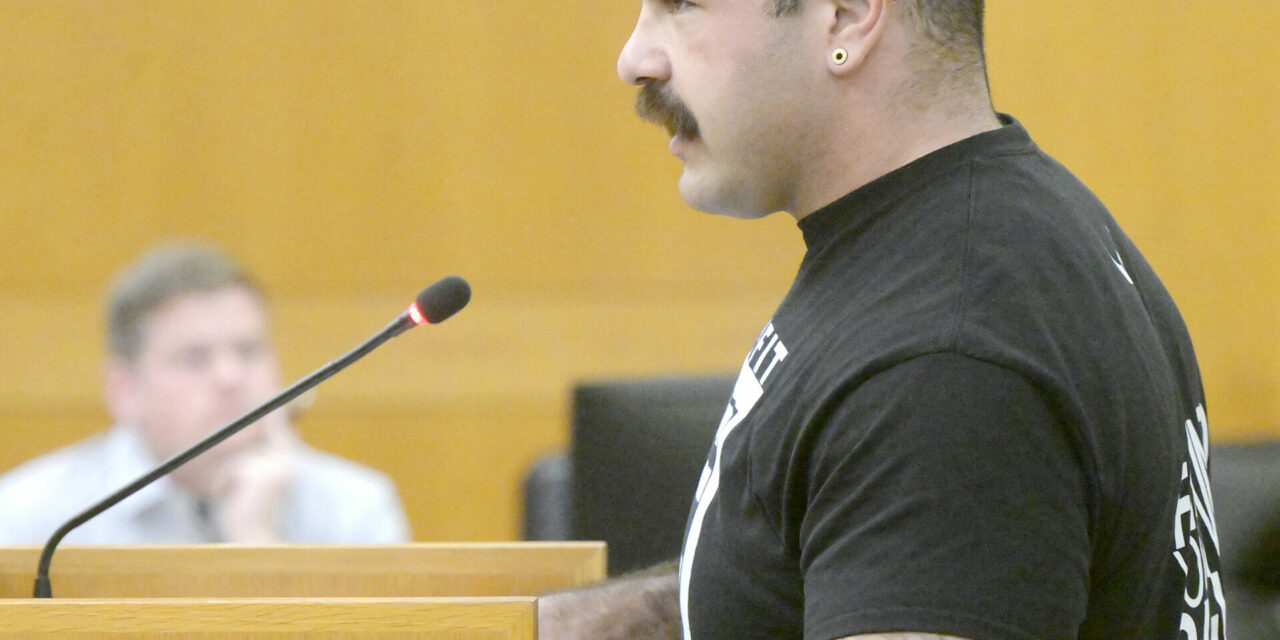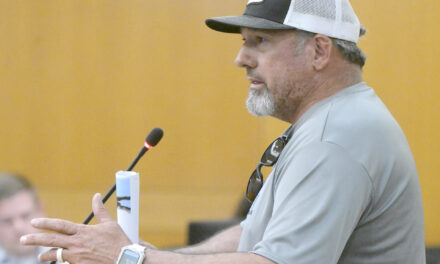The city of Los Banos was singled out by the Merced County Civil Grand Jury for its lack of transparency and faulty practices in handing out grants under the federal American Rescue Plan Act.
In its annual report, released Sunday, June 30, the all-volunteer Grand Jury noted that other cities, including Gustine and Dos Palos, helped business owners learn of the program then made the application and approval process much easier.
The Jury wrote that Los Banos’ guidelines were “not clearly defined or adequately publicized despite numerous requests from the public.” It also pointed out that Dos Palos and Livingston were “quick to invest in identified needs immediately,” instead of waiting over a year for clarifications from the federal government.
Local business owner Graciano Rubio has appeared frequently at city council meetings to complain about the council’s conduct; he was not surprised by the report – though he felt the Grand Jury could have gone much further.
The owner of CrossFit Gym in Los Banos, Rubio received an ARPA grant of $15,000 in May 2023. A short time later, he learned other businesses – including one owned by city councilman Ken Lambert and others owned by people with connections to councilmembers — had gotten the full $25,000; Rubio wanted to learn why he had not. His gym was closed 84 days during the pandemic quarantine then operated under severe restrictions for the first year of recovery.
Failing to get answers through repeated phone calls and emails, Rubio began attending city council meetings where he pointed out inconsistencies in how businesses were chosen for grants and how much they received and the city’s failure to follow the federal guidelines.
Then, in March, he testified before the Grand Jury.
“Once the grand jury investigation started,” said Rubio, city officials “started behaving differently.
“They had been trying to impose their authority and be big shots, but after the grand Jury called, it was, ‘Let’s sit down and talk about it.’”
More than a year after his original grant, Rubio was given an additional $10,000 in June.
At least five people with knowledge of questionable decisions by the Los Banos City Council were asked to testify before the Grand Jury; three said they brought extensive documentation about either ARPA irregularities or other issues. All reported the Grand Jury took no interest in their documents.
In the interest of transparency, Westside Express Publisher Gene Lieb also applied for an ARPA hardship grant in connection with the Los Banos Enterprise. His application was rejected and, like Rubio’s, Lieb’s appeals were denied. Lieb did not continue his appeals or testify before the Grand Jury and received no ARPA funding.
When he asked questions about why the city had taken 14 months to grant his full request, Rubio said city staff told him they needed time to “clean up” the application process.
“It wasn’t a cleanup, it was a coverup,” said Rubio. He said he told city staff, “You’re only doing something now because I presented this publicly.
“It begs the question, what other issues are they covering up? We know some of them.”
Rubio is also a Chartered Financial Analyst and familiar with both accounting procedures and complex application processes. He said there are still many unanswered questions involving how Los Banos spent its nearly $10 million in ARPA money. The Grand Jury shows $6.4 million was transferred into the city’s general fund through the “revenue replenishment” process. The city offered no explanation on how that money would be used.
In contrast, the City of Merced designated $13.8 million of its $27.4 million total as “revenue replacement,” but showed how all of it was spent – including $7.5 million for support of non-profits.
Los Banos offered no explanations, and once ARPA money has been designated as revenue-replenishment, it appears that it can be transferred into the general fund to be used for any city purpose – an issue not addressed by the Grand Jury.
“We have no idea where that $6-and-a-half million went,” said Rubio.
Cities could distribute ARPA funds through seven broad categories, including to businesses that suffered “Negative Economic Impact” due to quarantine. Los Banos handed out 35 such grants, totaling $1,200,600. The biggest recipient was the countywide RAD Card, which got $514,375 from Los Banos for a program designed to subsidize discounts on purchases made in local businesses.
The most common amount granted to businesses, individuals and organizations throughout the city was $25,000. Early recipients included Elaine Cory (Central Hotel), Jimmy Wayne Dueval (Tony’s Rendezvous), Reginald Grimes (the Academy of Performing Arts & Fitness), the Chamber of Commerce, Donna Koblis (Body Transformations), Amber Pope (Strike Fitness) and Lambert (Biggin’s Texas BBQ).
In his efforts to find out why he hadn’t received the full amount, Rubio said he called councilmember Brett Jones, who is currently the subject of recall efforts along with councilmember Doug Begonia Jr.
“(Jones) starts making excuses, starts talking about draining the swamp, starts talking about cutting trees. And he says, ‘$15,000 sounds pretty good.’
“But I told him, ‘When you’re talking to your buddy on the council (Lambert), and you’re giving him more money, it doesn’t sound so good to me. I’m just asking to be treated the way he was being treated.’”
The Grand Jury did not comment on the city’s funding choices but faulted the application process. The Grand Jury also complained about a lack of transparency, an issue Rubio experienced first-hand when he made inquiries.
“They said they were continuing to review applications” when asked about his appeal. “A year later, they said they were still reviewing applications. What they were trying to do was get more information so they could craft a story for (city manager) Josh (Pinheiro) to approve. They tried to put all the blame on us, saying we didn’t provide all the information they needed to correctly process our application.”
The Grand Jury contrasted Los Banos’ system – which “provided little to no information” – with Gustine’s “one-stop” application assistance, complete with an identified point of contact at city hall.
Meanwhile, the city spent almost all of the money in the “Public Health” category on public safety. Proforce Law Enforcement of Brea was paid a total of $39,989 in Los Banos’ ARPA funds. Victory Tactical Gear of San Ramon got $12,332, and Fresno-based Cook’s Communications, which specializes in emergency systems, got $12,434. Two companies affiliated with Pen-Link Ltd of Lincoln, Neb., got a total of $24,902 while The Radar Shop of Wichita, Kan., got $540.
Within the 98-page report, the Jury issued Investigative Reports on Homelessness, Merced City School District and the county’s Housing Authority. The most critical report concerned Merced City Schools, based on its contentious search for a new superintendent. The Jury recommended several procedural changes, including Brown Act compliance training and greater compliance with the district’s Governance Team Handbook.



